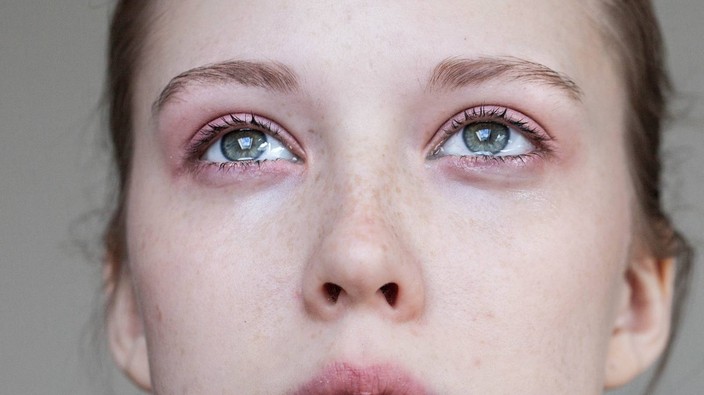powered by:
valneva canada inc.
machado: grief and the pandemic's collateral damage
there are so many people who have had to leave a loved one at a hospital, only never to see them again.
may 17 2021
 4 minute read
4 minute read


so many of us are navigating loss during a lonely time.
getty
there’s this thing about grief.
it’s complicated and painful — in a sharp, stabbing sort of way. at first, it’s like you can’t breathe, you may feel that maybe you just might die too. sometimes there are tears, other times just … nothing.
when you know it’s coming, for example, if the person you love is sick, the idea of losing them is heart-wrenching awfulness, but somewhere in your mind, you might be bracing yourself for the hurt — even if just a little. if you are lucky, you use this time to whisper sweet nothings, hold hands and talk about why your world will never be the same after they’re gone. and when they leave you forever, the pain of loss and being left is suffocating, but maybe there is some small comfort in the fact that your person died knowing how you felt, and that you have been left knowing how they felt about you.
for many of us during the pandemic, losing someone has meant not having time to prepare, to chat and to tie up loose ends. it’s also meant that sadness and grief occurs at a distance — sometimes the goodbyes have to be said virtually, with a healthcare worker holding a device to the ear of a loved one. sometimes there is no goodbye. regardless, those left behind are weighed down by the words they didn’t get to say and the embraces they didn’t get to share — we feel numb, guilty and so, so alone. some of us are a little angry, too, inconsolable and lost.
these are just some of the feelings that dozens of people described in the many emails, tweets and messages in response to my piece about how it felt to lose my brother without the chance to say goodbye. so many people — in pain and grief, desperately trying to move through their complicated emotions — took the time to share what unexpected and distant loss has been like for them during this pandemic. there are so many people who have had to leave a loved one at a hospital, only never to see them again.
advertisement
advertisement
in fact, the response was so touching — and worrying — that the healthing team has begun work on a series looking at grief: what loss causes us to feel, how did our healthcare system get to a place where people are being left to die alone, and most importantly, how can loved ones recover from these devastating losses and emerge emotionally and mentally intact.
a study published in the american journal of psychiatry took a look at the link between the unexpected death of a loved one and the development of psychiatric disorders over a lifetime. the researchers found that the unexpected loss of a loved one was associated with a marked increase in panic disorders, phobias, post-traumatic stress disorder, depression and anxiety in those who experienced such loss. they also observed that while “any death of a loved one can be emotionally devastating, unexpected deaths provoke strong reactions” because there is less time to prepare and adapt. not being able to say goodbye can also make the loss more difficult to accept , feel less real, more painful and extend the mourning process.
tell this to anyone mired in the grief of unexpectedly losing someone important to them, and they won’t even flinch. for the many people who shared their experiences with me, their sadness was a heavy fog that clouded every aspect of their lives — unfinished business that was pushing out the good things and making anxiety and depression easy, and completely and utterly understandable.
one of the things that can make loss feel so insurmountable is what psychiatrists call the “couldas, wouldas, shouldas,” also known as hindsight bias. hindsight bias, sometimes called the “i-knew-it-all-along” effect , refers to our tendency to look back on an unpredictable event as if we knew what was going to happen all along. for example, my brother died after a liver biopsy. in hindsight, i feel i should have stopped him from having the procedure. if only …
advertisement
advertisement
we search for sense in the seemingly senseless, writes eleanor haley on the website what’s your grief , adding that it’s the “most instinctual coping mechanism.” it makes sense, then, that many of the people who wrote to me said things like, “i shouldn’t have left her at the hospital,” or “i wish i would have insisted on being allowed to visit.”
certainly, robbing people of the chance to sit with their sick loved ones and to provide comfort and support is just one of the many tragedies of the pandemic. and forcing people to say goodbye to their loved ones at a distance, or not at all, or only allowing visitation after a death, will have mental health consequences for all of us long into the future. add to this the inability to physically connect with family and friends to observe typical mourning traditions, and well, it’s clear that this is just one more example of the pandemic’s collateral damage.
covid-19 has tested us in a thousand ways, but certainly we have not forgotten the importance of dignity for the dying and respect for their loved ones. have we?
if you have a story of loss that you would like to share, we want to hear from you. email me at lmachado@postmedia.com.




